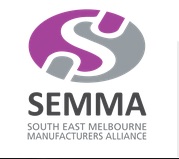Local manufacturing can play a vital role beyond essential medical equipment and pharmaceuticals during the Covid-19 pandemic.
Vonda Fenwick, chief executive of South East Melbourne Manufacturers Alliance (SEMMA), seized on Prime Minister Scott Morrison’s comments on ensuring Australia wasn’t again exposed to medical supply shortages.
In response to the crisis, Australian manufacturers were producing thousands of life-saving ventilators for intensive-care patients as well as personal protective equipment (PPE).
“The focus however must be much broader than essential medical equipment and pharmaceuticals,” Ms Fenwick said.
“In the short term we need governments at federal and state levels to focus on their policy settings and procurement processes to ensure support for onshore manufacturing and robust supply-chains.”
Import supply chains of other products have also been under threat during lockdown.
Springvale feminine-hygiene product maker Asaleo Care recently told Star Journal of using a 3D printer to replace vital assembly-line parts usually sourced from Italy.
Ms Fenwick called on identifying what imports could be made onshore for the greatest short-term employment and economic benefit.
“Meaningful” local-content percentages for “all government procurement” and 100 per cent Australian steel in all major Government projects should be mandated, she said.
Victoria’s unemployment is forecast to double from its current 5.2 per cent rate due to corona’s crippling impact.
Ms Fenwick said manufacturing was a key to the most rapid economic recovery because of its high “multiplier effect” in creating jobs in other sectors.
“We are not promoting protectionism, denying the benefits of globalization, seeking to wind back Free Trade Agreements or asking for government handouts.”
In the long term, policies on R&D incentives, inexpensive energy and STEM education and skills were required.
Manufacturing was the “engine room” of the economy, which would drive strong growth and creation of well-paid, high-value jobs, Ms Fenwick said.
“A thriving manufacturing sector is essential to our economic prosperity, our quality of life and our national security.”









